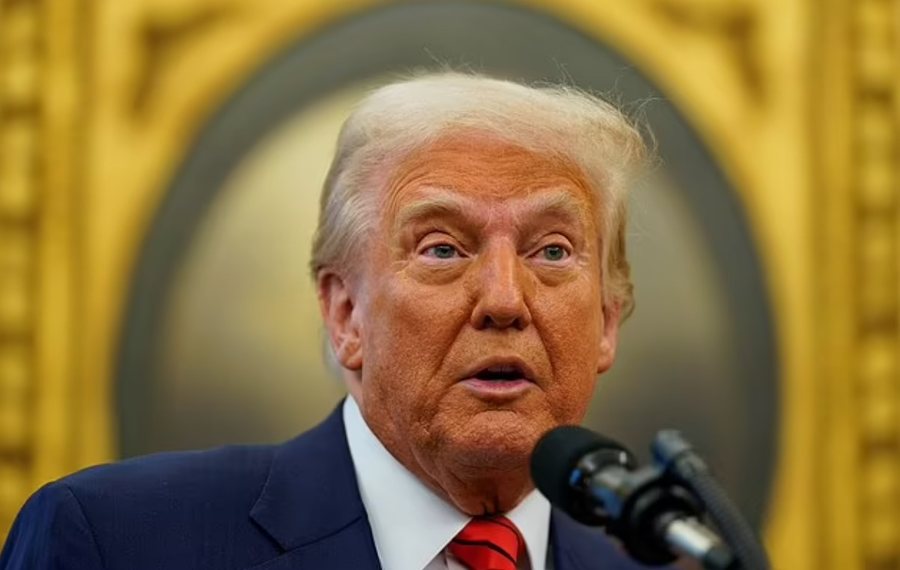
The President of the United States of America, Donald Trump, has expressed shock over the latest figures which show that autism is increasing at a very rapid rate in the US.
In a post on Truth, the president wrote: '20 years ago, autism in children was 1 in 1000. Now it's 1 in 34. WOW! 'Something is really wrong.'
Trump's numbers, however, were a bit off. The CDC reports that seven children in 1,000 had autism in the early 2000s. And recent data suggests that one in 36 had it in 2022.
However, experts have raised concerns about the rapidly rising rates of autism, which they say may not be solely due to better diagnosis and awareness.
Dr. Cooper Stone, a psychiatrist in Philadelphia, says there is a possibility that environmental factors may be partly implicated in the development of this condition.
Several studies have shown that chemical contamination in food and water can allow toxins to enter the bloodstream of pregnant mothers and travel to the brain of the developing fetus, causing inflammation that damages nerve signals leading to autism.
Some experts have also speculated that an increase in pesticide use may also be responsible for lower IQs and delays in children.
Furthermore, more babies are surviving being born prematurely than in decades past, making them more vulnerable to developmental delays and autism.
In general, most with this disorder are diagnosed by the age of five, although some can be tested as young as two.
Research published last year in JAMA Network Open found that between 2011 and 2022, autism diagnoses in children between the ages of five and eight increased 175 percent, from two per 1,000 people to six per 1,000.
However, the biggest increase was among young people aged 26 to 34, with a 450 percent increase, suggesting they were delayed in receiving a diagnosis.
Older research from Harvard also found that exposure to air pollution like particulate matter in early childhood can increase the risk of autism by up to 64 percent.
While in the womb, exposure can increase the risk of ASD by 31 percent.
Experts suggested that particles inhaled during early childhood or while in the womb can travel through the bloodstream and bypass protective layers in the brain, causing inflammation that hinders neural development.
An Australian study published earlier this year also found that boys exposed to the endocrine-disrupting chemical Bisphenol A (BPA) in the womb were six times more likely to be diagnosed with autism before the age of 11 than those without exposure.
That team suggested that BPA, which lines plastic and metal food packaging, an ever-increasing contaminant in the modern world, was linked to neurological and behavioral changes associated with autism.
The US has also seen an increase in the use of synthetic pesticides, which some say may also be a contributor.
The use of these chemicals has increased 50-fold since 1950.
In 1952, for example, only one in 10 corn fields used pesticides to help kill pests. But by 1982, 95 percent of corn fields used them.
Some studies show that up to 80 percent of Americans have detectable levels of pesticides in their blood.
Last year, the Environmental Protection Agency announced an emergency suspension of the pesticide dimethyl tetrachloroterephthalate (DCPA or Dacthal) due to evidence suggesting that babies exposed to it in the womb may be born underweight and with reduced IQ and development. (Adapted from Daily Mail) (A2 Televizion)











